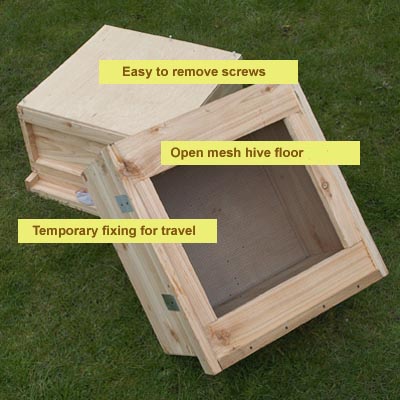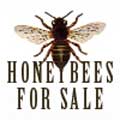Norfolk Honey - getting started - buying honeybees

Getting started in beekeeping - buying your first bees
You have wanted to keep bees for years and now, this year, it's time to take the plunge and get stuck in.
You have read the books
You have watched youtube
You have checked out
all the web sites you can find
You have joined your local bee keepers association
You are taking a course in beekeeping
You may even have bought some equipment
BUT YOU HAVE NO BEES!
So just how do you go about getting your first bees?
I'm sure that everyone now knows that the last few years haven't been exactly good for bees and that stocks are down across the country. Apart from having to deal with the Varroa mite our recent weather hasn't helped. This winter (2008/09) has been colder than usual and the last two years leading up to it have been generally wet and miserable. And this winter 2012-2013 was even worse and seemed to go on for ever.
Many beekeepers have lost some of their bees and are looking for replacement colonies just when bees are in short supply.
How exactly do you buy bees?
New beekeepers: You can buy bees as complete colonies in the hive and in this case you will be buying the floor, brood box and crown board all together. Buying a complete colony of bees is the easiest way and in many ways the best way of buying bees. However, unless you find a beekeeper who has to sell his bees and is giving up for some reason or another it probably won't be the cheapest way. If you can get the beekeeper to deliver a box of bees to you better still. It will be worth the cost of delivery and avoids you having to cope with the possibility of a car full of escaped bees!
Experienced beekeepers: You will probably already have equipment and may just want the bees. In this case you can buy a 'nuc' this is half a colony with the queen. Normally around five frames of bees, brood and stores. A nuc is moved from one bee keeper to the next in a travelling box.
How much does a hive of bees cost?
A complete hive of bees can vary greatly in the number
of bees it contains so it isn't an easy commodity to price. If you are lucky
enough to find a beekeeper giving up and selling a complete hive of bees you could email
me for current advice and valuation if you wish, but I am likely to simply say "snap
it up quick before someone else does".
Your local beekeepers
association will have established beekeepers and if you are lucky some will have bees for sale.
A good bee keeping course will include a 'nucleus of bees' at the end of the course to get you started.
A nucleus of bees
A lot of beekeepers who breed bees sell what we call 'nucs'. A nucleus
of bees is a portion of the hive as opposed to a complete hive. Nucs are described
by the number of brood frames they contain and those frames can be transported
in a traveling box. Or they may still be in their nuc box.
A 'nuc' has to contain a laying queen bee and fair amount of healthy brood plus
some stores to keep the bees going. Nucs are generally available in the height
of the season and can have a 'new' queen or an 'old' queen. A new queen should
be one bred that year. In my opinion no nuc should have a queen older than
one bred the previous season.
In recent years I have been selling nucs in traveling boxes. I have also been selling nucs put into a new brood box.
Nucs in a new brood box
A nuc in a new brood box is, I think, an excellent start for beginners. As
the brood box is brand new there won't be any chance of it harbouring disease as an old box may do. Half of the frames will be brand new and the bees love new wax foundation to build on.
The bees can be given a chance to settle down in their new home before they
have to travel and if the brood box is carefully lifted into the boot of
a car and cushioned with old pillows the journey shouldn't disturb the bees
too much. My brood boxes are attached to an open mesh floor so there is plenty
of air. Once the beekeeper gets their bees home they won't have to transfer
bees from a nuc box to a brood box and risk loosing a queen.
Getting an early start
If the weather is good in the middle of April then it is
possible to take the queen out of the hive with a reasonably good chance that
the remainder of the colony will survive the shock by breeding a new queen
to replace her. So the first bees of the season that I sell are available around
the middle of April. They will be the previous year's queens and the first
nucs that I will be selling this year will be nucs in a new brood box.
Nucs in a brood box gives
me the flexibility of working with the weather. I can transfer the bees from
an established hive to a new brood box on nice sunny day. Everything I can
do to reduce stress on the bees must be a help to them. What the weather
is like when you want to come and pick up your box of bees is not so important,
although the time of day is and needs to be in the evening when the bees are not flying or early in the morning.
Buying bees in April gives you as a beekeeper lots of advantages apart from
simply knowing that your queen has been tough enough to survive a winter. One advantage is that you have the time to build up a large and thriving colony of bees before the next winter arrives. Or you can get straight into queen rearing and take more than one hive into
the next winter a thereby doubling up your chances of getting your bees through
to the next year. By starting early you also get the experience of working with your bees throughout
the season from a small colony at the beginning of May to a large hive full
of bees that you can take honey from at the end of July.
Nucs in a new brood box are available now - you can supply your own box.
The minimum requirement for buying a nuc in a new brood box is - a Varroa
open mesh floor, a brood box, and a crown board. These three with the bees
will cost £230 (23/3/09) please contact me if
you wish to put a deposit on a nuc in a brood box made ready for collection
sometime in the middle of April.
If you want a Queen excluder too then add another £10. You
will need to feed your new bees when you get them home and may wish to buy
a bucket feeder £8.
If
you want to buy a complete hive all made up for you please click
here for more information on a complete hive with bees

